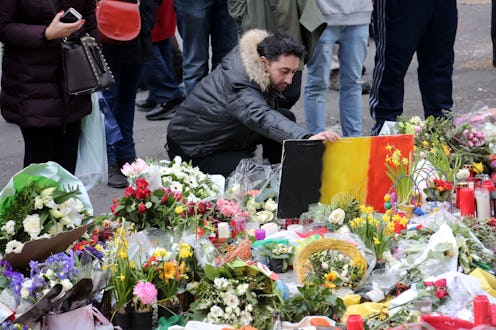News
Two More Americans Confirmed Dead In Brussels
The State Department has confirmed that two more Americans are among the dead following the recent jihadist attacks in Brussels, bringing the number of U.S. citizens confirmed dead in the blasts to four. The State Department official declined to speak on the record, according to the Chicago Tribune, but extended their "deepest condolences" to the people affected by the violence.
The coordinated attacks on Brussels' airport and the Brussels Metro system have left 31 people dead, including the three suicide bombers, and 270 injured. Police in the Dutch city of Rotterdam made an arrest in connection with the attacks at the behest of French authorities today; three additional men were also taken into custody. Rotterdam lies less than a two hour drive due north from the Belgian capital and seat of the EU executive branch.
Preliminary results from the international investigation suggest links between the Brussels bombers and the terrorist attacks in Paris last November that left 130 people dead.
The State Department has also issued a travel alert for Europe until June 20. The alert states: "Terrorist groups continue to plan near-term attacks throughout Europe, targeting sporting events, tourist sites, restaurants, and transportation" and encourages vigilance when using public transit or during festivals or sporting events.
While the recent uptick in violent public attacks in Europe is troubling, it is important to remember that the EU has faced the specter of terrorism successfully for decades, resulting in the creation of the supranational judicial cooperation known as TREVI (Terrorism, Radicalism, Extremism & Violence International) in 1975 and Europol in 1998. Ironically, the threat from right-wing, left-wing, and jihadist elements stretching back to the beginning of the Cold War has played an influential part in uniting the European community.
Terrorist attacks are also, sadly, not a new phenomenon either, but things have been worse. According to data compiled by The Economist, deaths from terrorist attacks in Europe have mostly declined in the time between the 2004 and 2005 subway bombings in Madrid and London and last November's Paris attacks (one notable exception is the July 2011 bombing and mass shooting in Oslo, Norway that killed 77 people).
However, whether or not the EU can politically withstand the cascading effects of terror attacks in its current form is increasingly being called into question. The Schengen Treaty has been suspended in some areas of Europe, for example. Schengen guarantees the free movement of people and capital between European member states, and has been an essential ingredient in the success of the EU thus far.
With controls back in place, Europeans and non-Europeans alike will be facing longer travel times, which may delay trips or business to neighboring countries, not to mention the added stress on traveling. The ramifications from Brussels are just beginning.
